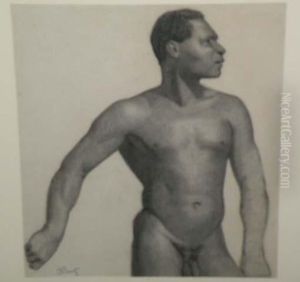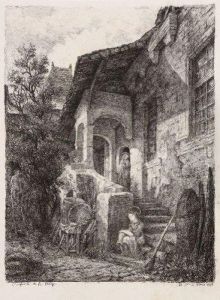Jean-Baptiste, Jean Frenet Paintings
Jean-Baptiste Jules Trayer, often known simply as Jean Trayer, was a French painter born on December 25, 1814, in Paris, France. He was known for his genre paintings, religious themes, and portraits, capturing the essence of 19th-century French society with a delicate and precise realism. Trayer's work is characterized by its detailed depiction of fabrics, interiors, and the everyday life of his time, often imbued with a gentle sentimentality.
Jean Trayer received his artistic training at the École des Beaux-Arts in Paris, where he studied under prominent artists of the time. Despite the initial influence of his teachers, Trayer developed a personal style that was noted for its meticulous attention to detail and a clear, vibrant palette. He exhibited at the Paris Salon, the official art exhibition of the Académie des Beaux-Arts in Paris, where he gained recognition and acclaim for his work. His paintings often depicted scenes of bourgeois life, religious ceremonies, and portraits with a realism that was both accurate and aesthetically pleasing.
Throughout his career, Trayer remained committed to the academic style of painting, even as the Impressionist movement began to gain popularity in France. His works were appreciated for their technical skill and narrative quality, often telling stories or capturing moments of daily life with a sense of intimacy and immediacy. Despite the changing trends in art during his lifetime, Trayer's work retained a loyal following, and he was awarded several honors for his contributions to French art.
Jean-Baptiste Jules Trayer passed away on December 21, 1889, in Paris. Today, his paintings are held in collections around the world, including in museums in France, where they continue to be studied and admired for their representation of 19th-century French culture and society. Trayer's legacy is that of a skilled craftsman and storyteller, whose works offer a window into the life and times of his era.


